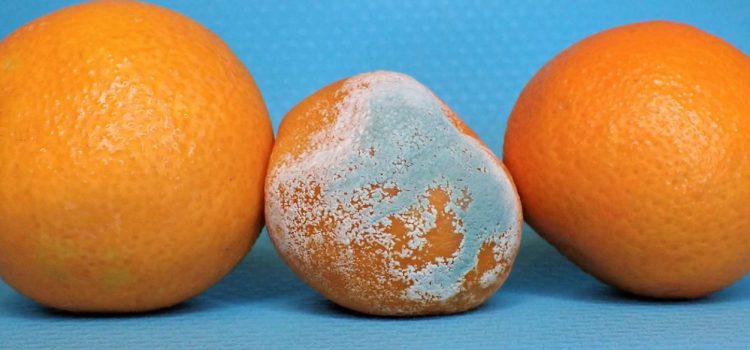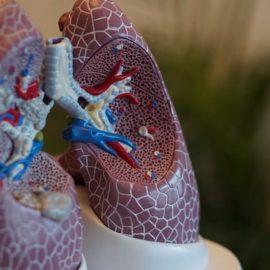

This article is an excerpt from the Shortform book guide to "Ageless" by Andrew Steele. Shortform has the world's best summaries and analyses of books you should be reading.
Like this article? Sign up for a free trial here.
What’s the connection between malfunctioning proteins and aging? How do you get your proteins to “work” again?
A substance that builds up as we age is protein. Proteins are the building blocks of all of our tissues, and as they malfunction, they accumulate and cause harmful effects.
Continue reading for why malfunctioning proteins age the human body.
Malfunctioning Proteins Build Up
In Ageless, Andrew Steele explains that scientists have studied three ways malfunctioning proteins and aging are connected. This is how malfunctioning proteins accumulate in tissues around the body:
1) A slowdown in autophagy, a process that removes and recycles old protein molecules. As you age, leftover pieces of proteins accumulate and impair autophagy. Steele notes that this plays a role in Parkinson’s disease, where deposits called “Lewy bodies” form in the brain.
The potential fix: Steele writes that dietary restriction (eating fewer calories) stimulates autophagy. Scientists have also found drugs, called dietary restriction mimetics, that simulate the effects of dietary restriction without a change in diet. Plus, they’re developing ways to boost autophagy directly with bacteria that help cells to break down waste.
2) A buildup of amyloids: misshapen protein molecules that form when proteins fold incorrectly. Amyloids stick together and form plaques in your organs and tissues, leading to Parkinson’s disease, amyotrophic lateral sclerosis (ALS), and Huntington’s disease.
The potential fix: Steele writes that we could use antibodies—proteins that mark viruses or bacteria that the immune system needs to destroy—to signal the immune system to clear amyloids. Alternatively, we could use specific antibodies called catabodies that can destroy the proteins themselves. A third option would be to use a virus, M13, that breaks apart the proteins implicated in Alzheimer’s, Parkinson’s, and Huntington’s diseases.
3) The accumulation of adducts. Adducts are proteins formed when reactive sugars and oxygen attach themselves to your proteins and stop them from functioning properly. Adducts are to blame for diminishing bone strength and stiffening blood vessel walls as you age. And when collagen—a protein in your skin and blood vessels—gets more sugary and oxidized, it stiffens, which causes visible aging in your skin and stiffening in your arteries, lungs, and tendons.
The potential fix: Steele explains that drug treatments could remove sugar molecules from collagen and make the tissue flexible again. Alternatively, scientists could develop treatments to prompt the body to destroy and replace old collagen.
| Good Housekeeping: Get Your Proteins Back to Work Some experts see age-related protein dysfunctions as a decline in your body’s “housekeeping”: when cells stop properly replacing, modifying, and otherwise managing proteins—leading to, as Steele notes, a buildup of leftover proteins that interferes with cell function. One way to get proteins back to work, and boost autophagy again, is to stress your cells into “survival mode.” That’s how dietary restriction works: When energy is limited, the nutrient sensing pathways that control your body’s response to food work harder to regulate your cells’ functions. This reduces biological age, a measure of the age of your cells and tissues, so some experts contend that it slows aging. But others say this logic depends on the unproven idea that biological age predicts healthspan or lifespan better than chronological age. As Steele notes, scientists also think you can boost your body’s housekeeping skills without a strict diet. The first anti-aging trial approved by the FDA is testing metformin, a diabetes drug that mimics the effects of dietary restriction. The study will not only test whether metformin protects against cancer, dementia, and heart disease, but it will also seek to prove that scientists can approach aging like a disease. Research into treatments for other protein dysfunctions is also ongoing. Early in 2023, the FDA approved the second anti-amyloid antibody that reduces amyloids in the brains of people with Alzheimer’s disease, an encouraging result after several antibodies failed during trials. But experts aren’t yet sure if reductions in amyloids will translate into real improvements in thinking or memory. Similarly, treatments that counter the stiffening of collagen are still in the works—though that hasn’t stopped questionable collagen products from proliferating. |

———End of Preview———
Like what you just read? Read the rest of the world's best book summary and analysis of Andrew Steele's "Ageless" at Shortform.
Here's what you'll find in our full Ageless summary:
- The processes that make us grow sicker and slower as we age
- How future treatments may treat—and even cure—aging
- Proven steps you can take right now to slow your aging process






